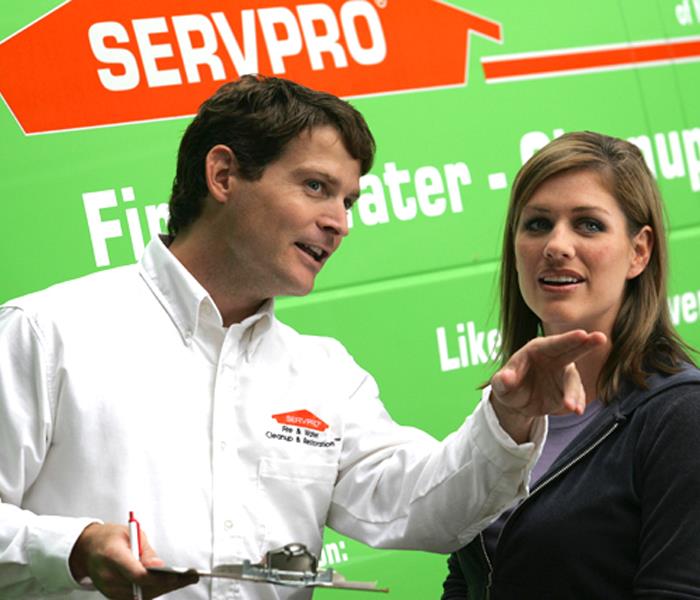Prevent Fire. Know Its 4 Elements
7/18/2016 (Permalink)
Fire is impossible unless four elements are present. If you eliminate or prevent one of the four elements from being present, you can protect yourself from fires at your home, business, or anywhere. Here are how the four elements work and what causes them to occur.
1. Heat
Heat is necessary for a fire to start. Unfortunately, heat can build up and start a fire in many ways including contact with a flame, too much friction, or mechanical generation (like with your car’s spark plugs). Firefighter and author Scott Finazzo says heat gets transferred in one of three ways.
1. Direct contact: The heat source touches another object.
2. Radiation: Heat travels in an electromagnetic way like when you put your hands near a campfire.
3. Convection: the heat transfers from one location to the next by the movement of fluids. An example is how a hot stove burner transfers heat into a pot of water.
Concerned about a fire risk or fire damage? Call (860) 216-2785.
2. Fuel
All fires require a fuel--something that burns. That can be wood, fabric, gasoline, ethanol, hydrogen, butane, or one of many, many other substances. Surprisingly, Scott Finazzo says most solids and liquids don’t actually burn. They are heated beyond their ignition temperature and start to give off combustible vapors (pyrolysis). It’s the escaping vapors that burn.
3. Oxygen
The third element every fire needs is oxygen. The air we breathe is about 21 percent oxygen. That’s enough to support combustion but oxygen itself does not burn. Air with a greater percentage of oxygen in it will burn more intensely.
Here’s another point many people don’t know. You can have enough heat, fuel, and oxygen without having a fire. There is one more element required.
4. Chemical Reaction
A chemical reaction occurs when the exact mixtures of the other three elements of fire (heat, fuel, and oxygen) blend in the right concentration to promote ignition.
Take away any of these four elements and you can prevent or stop a fire. Spraying water on most fires, for example, removes the heat to stop the fire. Shutting off the value to the burner on your gas stove removes the fuel and the fire stops. Putting a lid on a grease fire in a frying pan takes away the oxygen and stops the flames. For more information about fires, like the five major classes of fires, you could check Scott Finazzo’s book, The Neighborhood Emergency Response Handbook. Or call us.
Help Is Here
The team at SERVPRO of Bloomfield/Enfield has specialized training and experience in fire restoration services, natural disaster prevention, and natural disaster cleanup. Call SERVPRO of Bloomfield/Enfield (860.216.2785) anytime, 24/7.
We've served clients in Avon, Agawam, Bloomfield, Coventry, East Hartford, East Longmeadow, Ellington, Enfield, Farmington, Hartford, Manchester, Newington, Simsbury, South Windsor, Springfield, West Hartford, and beyond.
SERVPRO of Bloomfield/Enfield
IICRC Certified
Noemi Garcia
Franchise Owner
Call 860.216.2785
24 hour emergency service






 24/7 Emergency Service
24/7 Emergency Service